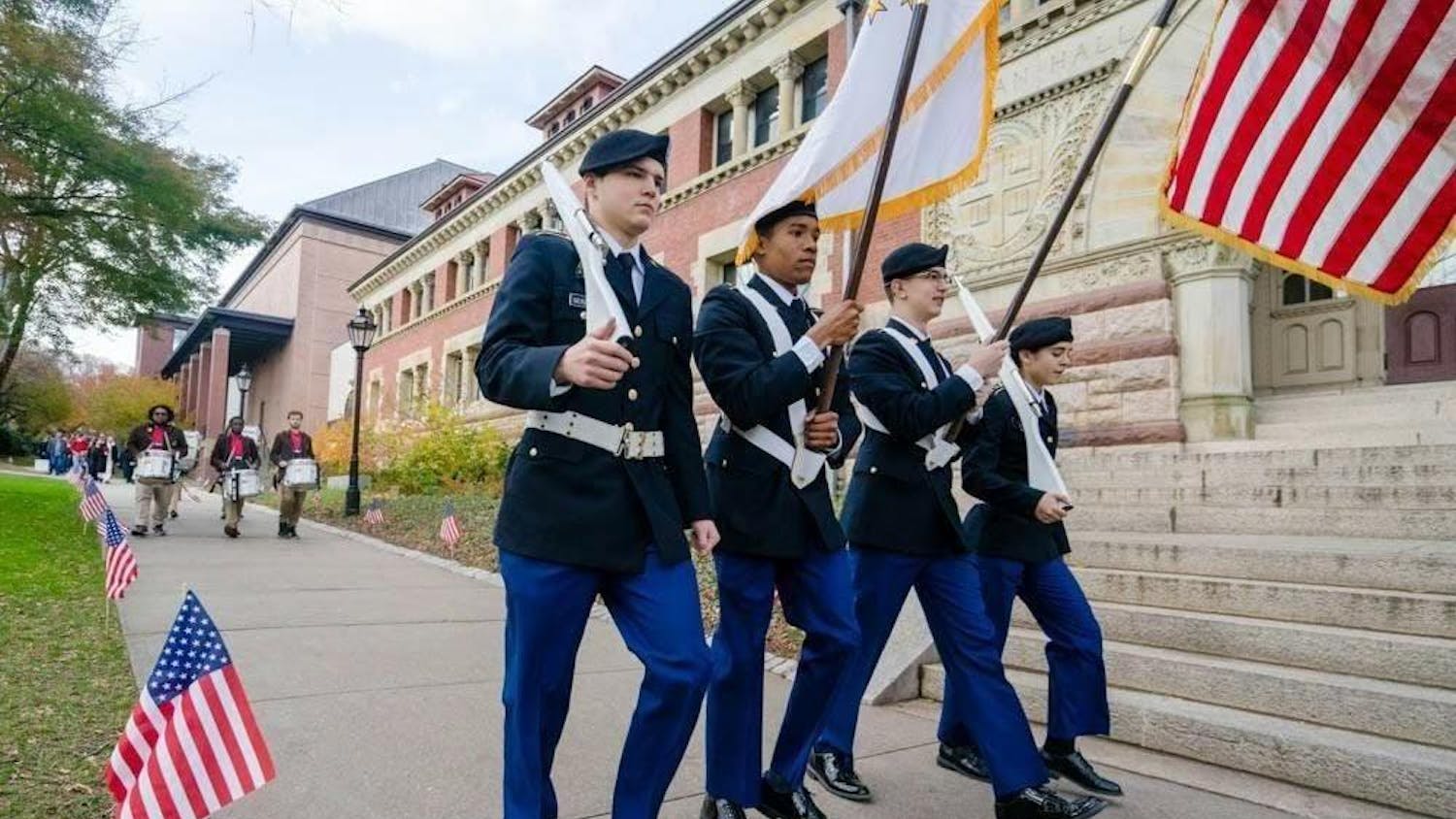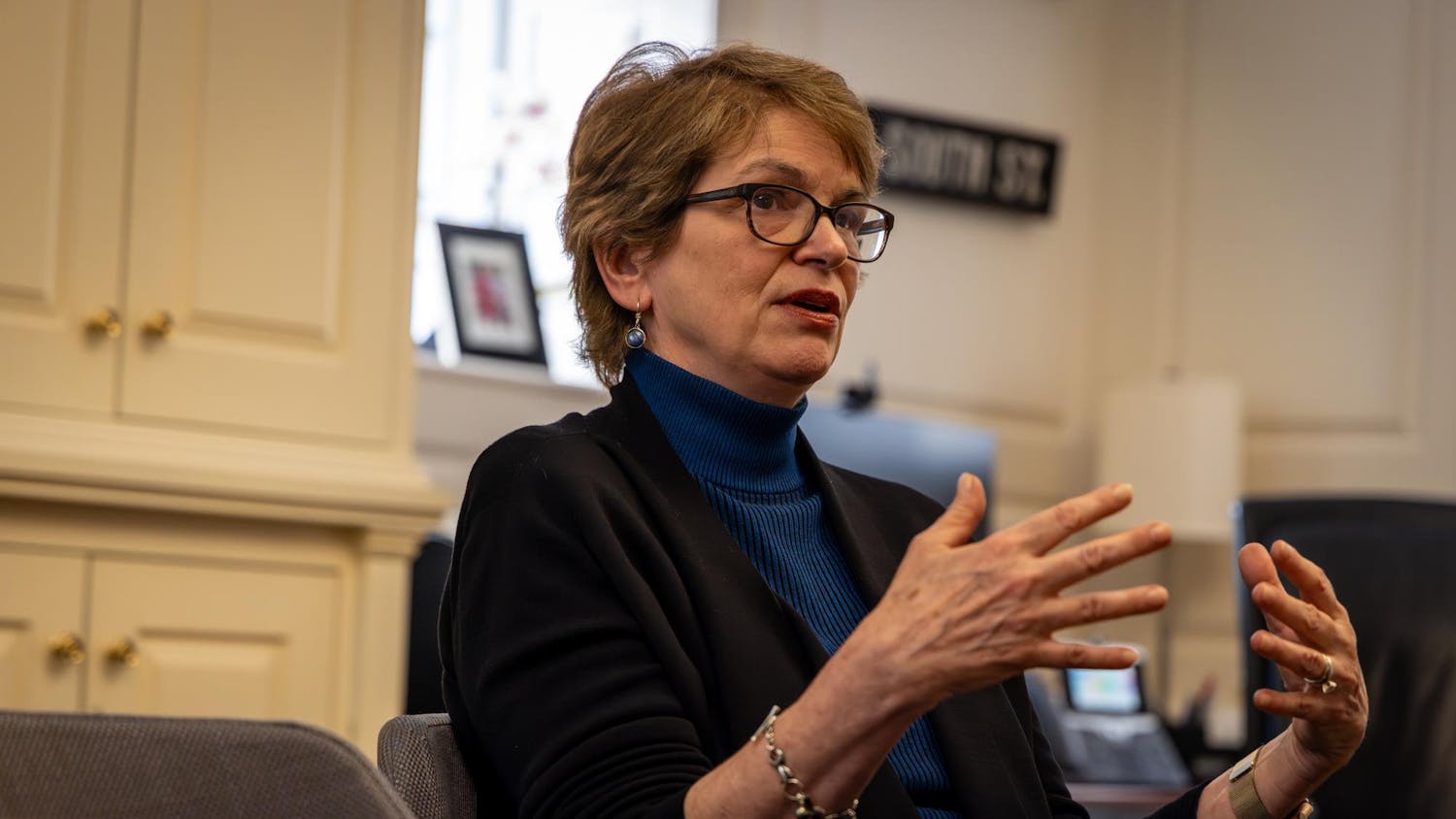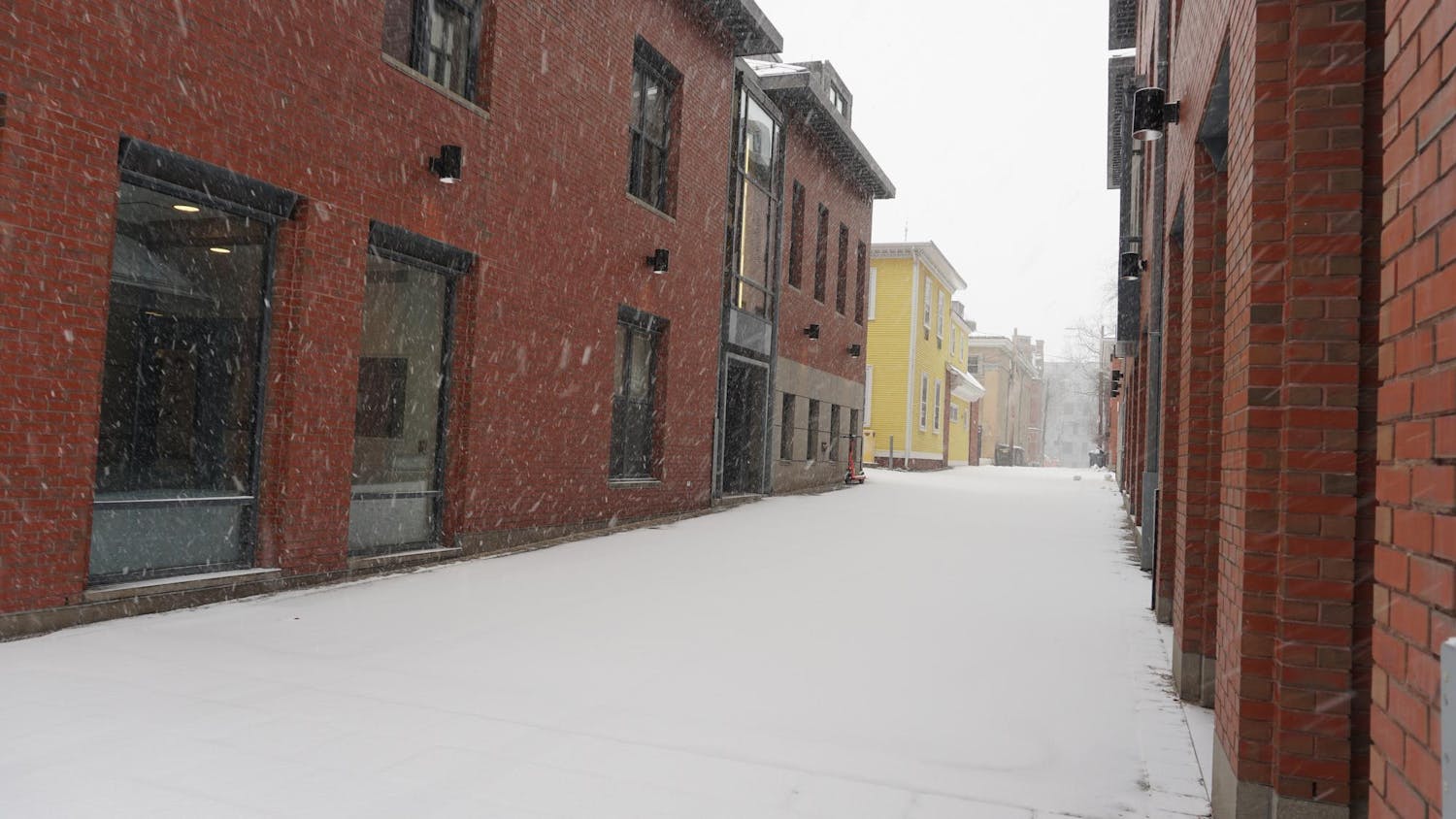The University is currently engaged in negotiations with the Graduate Labor Organization on increased pay raises for graduate workers, which they are demanding in order to offset the costs of their continued work amid the pandemic.
These wage negotiations are part of the union’s broader “Raises, Rights, and Respect” campaign, which is focused on listening to the experiences of graduate workers, especially during the COVID-19 pandemic, and demanding adequate response from the University by advocating for the needs of workers, according to GLO President Rithika Ramamurthy GS.
In early March, GLO initially requested a 10 percent stipend increase for all graduate workers as part of the required annual bargaining sessions outlined in the University’s three-year contract with the union that was settled last June, Ramamurthy said.
The union chose this percentage through surveys of and conversations with graduate workers that indicated that many had gone into debt and used their own funds to continue their research or teaching with the University, said Siraj Sindhu GS, lead organizer for social sciences and a member of the bargaining committee.
Costs incurred include buying home office equipment, upgrading WiFi, purchasing new laptops and obtaining books, which was made more difficult by the University’s temporary suspension of the interlibrary loaning program for part of the academic year, said GLO Union Workplace Steward Rose Rowson GS.
GLO recently compiled and printed the incurred expenses onto a “10-foot long receipt” that was taped to the door of University Hall on the Main Green, Rowson said.
Ramamurthy added that some graduate workers spoke of having to forgo buying groceries and being unable to pay for their medical co-pays due to the lack of financial support from the University.
“We have had to spend so much money on continuing to work for the University, people are going into debt,” Rowson said.
Through the union’s survey, many workers also shared concerns alleging lack of adequate financial support from the University during the pandemic, even having to buy their own Personal Protective Equipment to work in person in labs after not being provided any for most of the academic year, Ramamurthy said.
Other graduate students argued that the University conducted inadequate contact tracing for lab graduate workers, who said they were not alerted when a person working in the same building tested positive.
University Spokesperson Brian Clark wrote in an email to The Herald that the University has provided PPE to all “community members working in research labs,” and has collaborated with graduate students and offered opportunities to meet with GLO about COVID-19 practices.
But he added that based on the articles of the joint contract last summer, “COVID-19 health and safety measures are not subjects open for collective bargaining.”
As for the graduate workers’ concerns about contact tracing, “There is no protocol at Brown that calls for notification of entire buildings of people if one community member tests positive for COVID-19,” Clark wrote. “The University has a legal obligation to safeguard the confidentiality of personal health information, and community notifications would have the effect of violating that confidentiality as co-workers, colleagues and fellow students could be able to easily trace an individual in the area where the positive test has been reported.”
Many graduate workers feel that they are required to continue working in unsafe conditions.
“The University is kind of leaving grads behind, expecting us to carry on business as usual and what we're saying in this campaign is business as usual isn't really good enough,” Rowson said.
GLO’s bargaining committee of 18 workers began negotiations with the University related to graduate workers’ pay in late February and has had several meetings since then, Sindhu said.
The University is represented in these discussions by Executive Vice President for Planning and Policy Russell Carey ’91 MA’06, Director of Administration and Operations Ethan Bernstein and Deputy General Counsel James Green, according to Ramamurthy.
Virtual bargaining
As part of the bargaining process, the University and GLO negotiated the conditions of the pay raise discussions. The union advocated for “open bargaining,” which would essentially allow anyone to attend and observe the bargaining sessions, Ramamurthy said.
“We wanted bargaining to be completely open because we think that everyone who wants to watch should be able to watch,” she said, “and that it's always suspicious when the University is secretive about its financial negotiations, especially when they tend to make a lot of arguments based on other units” such as comparing wages of different worker groups.
The University initially shut down the suggestion, but after GLO organized virtual sit-ins that showed a large number of people in the Zoom waiting room ready to watch the discussions, administrators compromised and allowed 50 people to attend each session, said Franco Solleza GS, a member of GLO’s bargaining committee.
Rowson said that although engaging graduate workers in informal conversations about wage increases is generally more difficult in a virtual setting, the online nature of bargaining this year has made it easier for graduate workers to come out in larger numbers to show support.
Under its signed three-year contract with GLO, the University is annually required to give graduate workers a minimum 2.5 percent wage increase or match the percentage increase allotted to faculty and staff for that specific year, Sindhu said.
Ramamurthy added that this minimum wage increase is something that many unions advocate for because “it allows you to keep cost of living adjustment but also to compensate for unforeseeable financial difficulties.”
The University rejected GLO’s initial proposal of a 10 percent stipend increase in late March and responded with a counteroffer of the minimum floor of a 2.5 percent increase that faculty and staff are receiving next year.
Clark wrote that the University’s “focus is on good faith negotiations at the bargaining table,” but declined to comment on the specifics of bargaining sessions.
Sindhu said the University cited its financial health as reasoning for their rejection of the 10 percent increase.
But many GLO organizers were quick to point out that the University’s endowment has increased by 12.1 percent to a record high of $4.7 billion in the past year and cited emails from President Christina Paxson P’19 who has praised the University’s ability to recover financially during the pandemic and reduce its anticipated deficit.
According to Sindhu, the University typically draws out a certain percentage of the endowment to help fund its operating budget — which includes graduate worker stipends. In 2017, the University took out 5.49 percent of the endowment, but the University only plans to take out 4.8 percent for this fiscal year, despite the endowment reaching a record high.
This year’s percentage of funds taken out from the University’s endowment is the lowest it has been in five years, which Sindhu said “demonstrates that the University, by drawing only marginally more from its endowment, could easily afford to pay graduate workers the amount that we deserve.”
Despite the decrease in the percentage of funds drawn from the endowment, the University’s endowment distributions will increase by $12 million given overall growth, according to the University’s Proposed 2020-2021 Operating Budget Report.
Ramamurthy said it was upsetting for workers to hear that the University was “still not willing to fairly remunerate the workers that were keeping the University going over the past year” after it shared its successful financial performance.
Solleza added that the University has maintained a hiring freeze for graduate workers during the pandemic. This not only cuts costs for the University, but adds to the burden of current graduate workers who must take on the extra work, he said.
Overall, Solleza expressed frustration with the University’s position in bargaining. “This negotiation has made clear the amount of respect that Brown gives to grad students, and by that I mean very little,” he said.
Clark expressed the University’s continued support for graduate workers during the pandemic and in the future. “Well beyond the terms of our agreement with the Union, it’s important to note that over the last year, the University has implemented a wide range of measures to support graduate students contending with the COVID-19 pandemic’s financial impact,” he said, citing initiatives such as last year’s 2.5 percent raise increase, two semesters of extended funding and a new COVID-19 emergency fund.
“Our commitment remains strong to the well-being of our graduate students and to working collaboratively to support the continuity of their academic experiences at Brown,” Clark wrote.
‘Shared sacrifice’
In bargaining discussions, the University also spoke of workers adopting the idea of “shared sacrifice” this year — essentially meaning that graduate workers should accept a raise in line with other staff, Ramamurthy said.
In an email Paxson sent to the Brown community on April 6, 2020, regarding “tough” financial choices due to the economic impacts of COVID-19, she wrote: “Avoiding layoffs will require thoughtful planning, but I believe we have a caring and deeply supportive community that would engage in acts of shared sacrifice for the good of the whole to avoid laying off dedicated employees.”
GLO representatives say that the principle of “shared sacrifice” is inherently inequitable given that graduate workers are paid a much lower salary than professors. Sindhu noted that the median lecturer salary at Brown is roughly $80,000 a year compared to the average graduate worker stipend of roughly $32,000 to $35,000 a year, varying across disciplines. He added that an equal percentage raise-increase would have drastically different impacts on the actual amount of money afforded to graduate workers and faculty and staff in dollar terms.
Based on salary averages by ranking estimated by the Chronicle of Higher Education, Ramamurthy said that while a 2.5 percent raise increase would amount to roughly $4,600 for a faculty member, that raise for a graduate worker would cover only about two weeks of rent for an average apartment in Providence, at roughly $750. For graduate workers to receive an equal raise in terms of dollars, they would require a roughly 14 percent wage increase, higher than GLO’s initial request of a 10 percent increase, she said.
“It's not really equitable for those with higher salaries to get bigger raises (in dollar terms) on top of their already higher salaries, while those with lower salaries make lower raises on top of their already lower salaries,” Sindhu said.
A 2.5 percent raise for a lecturer or assistant professor “can pay my rent for three months,” but “2.5 percent of my salary can't pay for one month’s rent,” Solleza said. “Percentages are the root of a lot of inequality in society, and here’s a case in point.”
Looking ahead
GLO organizers argued that because of the new level of work that graduates have had to take on this year, the University simply reimbursing workers the costs incurred would not be a reasonable solution.
“The union always takes the approach that the best thing for one grad worker is good for all workers,” Ramamurthy said. “We want universally uplifting policies to be put in so that grads don't have to prove financial deficiency in order to get a raise.”
Since receiving the University’s minimum offer, GLO has come down from their first demand and proposed a 6.5 percent raise increase. The bargaining committee is awaiting the University’s response at the next bargaining session Thursday.
Moving forward, Sindhu said, GLO wants “the University to respect our union, to negotiate with us fairly (and) to listen to our expression of our experiences as frontline workers and as folks whose labor has helped to keep the University running.”
“Our goal is to basically have lots of grad workers’ voices heard that the rent is too damn high, that we need better wages (and) that we need the resources to be able to live lives without the threat of debt and precarity,” Ramamurthy said.
Ramamurthy added that “the wage campaign is really about more than money” and that it is more about “working towards social justice within the University because labor justice is a form of social justice.”

ADVERTISEMENT




